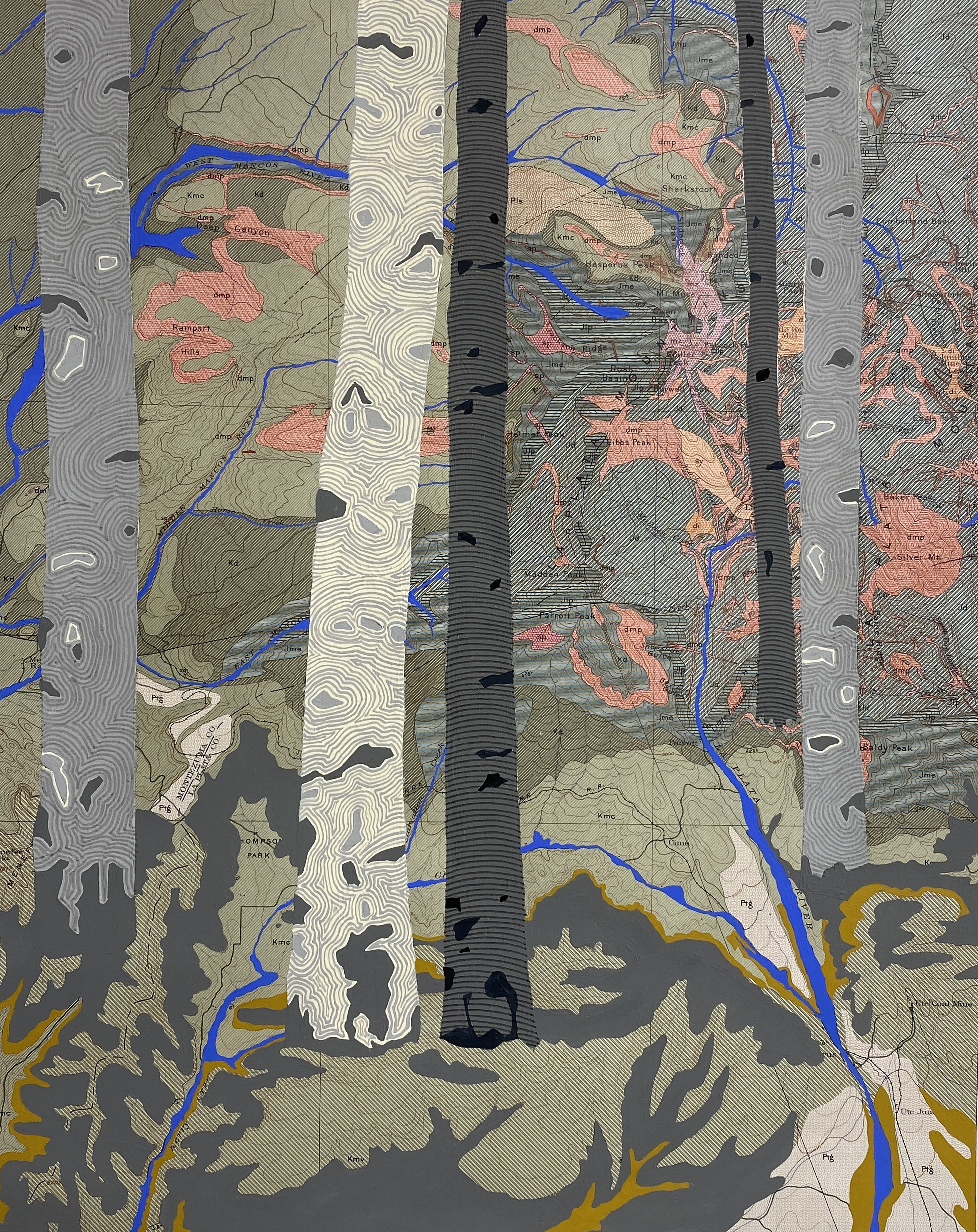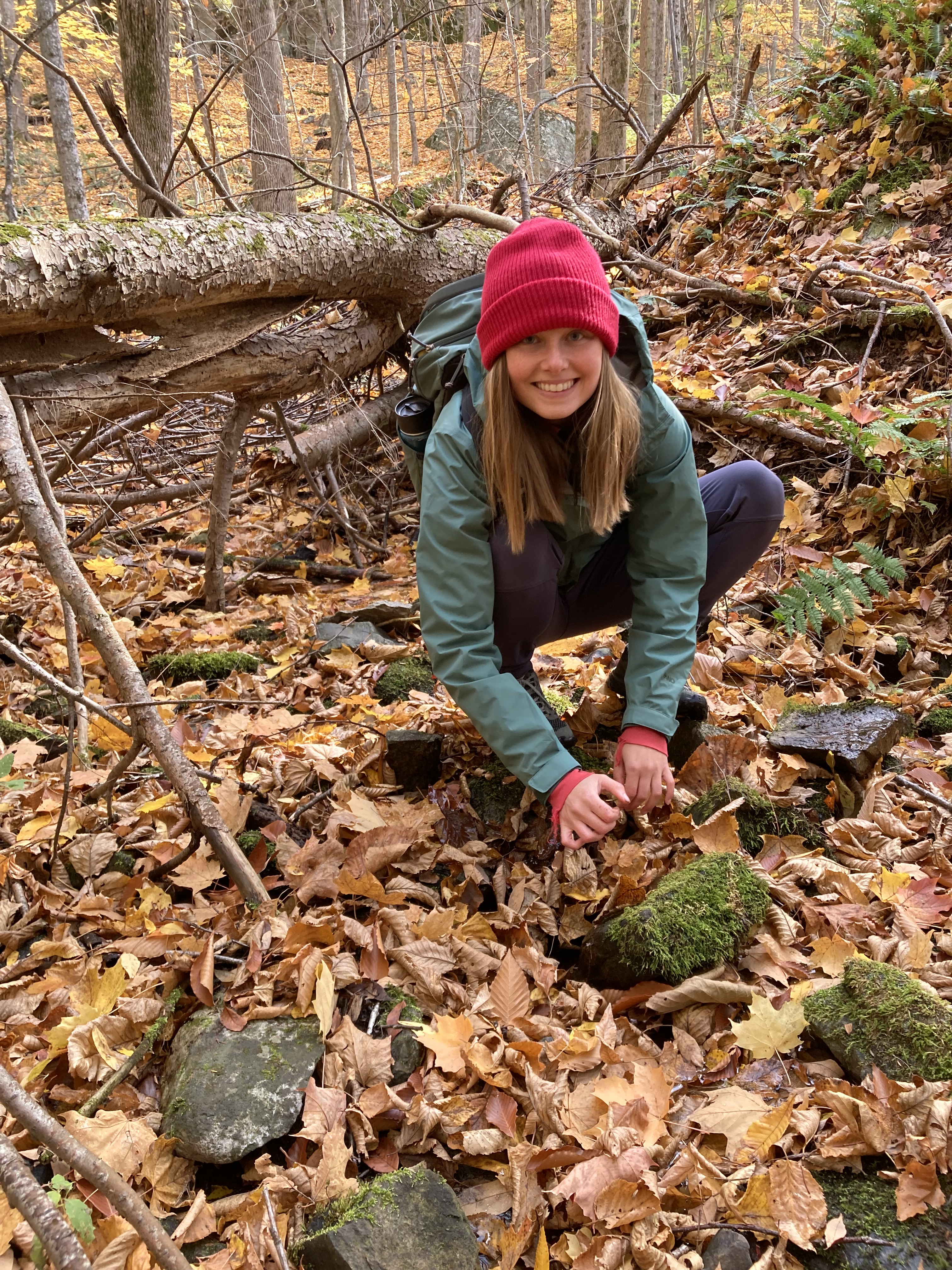What was the beginning of your relationship with the natural world? Are there any early formative memories that stand out or inform where you are today?
I was born in relationship with the rest of the natural world. We are part of it, and it is part of us. Many people have this conscious- ness, or understanding, from their earliest years. In addition, my grandmother had a large, ancient tortoise that lived outside the home, and she spoke with it. The tortoise understood what she was saying. If she told it dogs were in a certain direction, it would turn around in its journey. But I learned years later, also, that my horse, a mustang rounded up probably in Nevada, could know what was in my mind and anticipate my actions before I even reached her. So there is a form of communication that takes place, perhaps a form of knowledge, between human and all the rest. Now trees and even house plants are being studied for the same kind of communications. We know too little about the world around us, yet four-legged and winged, even leafed creations seem to know more about us. I study daily and find the new understanding of our earth and lives to be the most fascinating ways of knowing we can learn in our lives.
Did you have any childhood heroes or naturalist inspiration growing up?
No. I thought my grandmother the best, but did not think of any- one as a hero. And wouldn’t have known what a naturalist was. All the elders truly were naturalists with their knowledge of ecosystems and the world around us, but it was from years of experience and none of it from books.
What was your path to writing and to poetry?
When I discovered contemporary literature, I was excited and began writing immediately and I have never stopped. I try to write daily. It is like exercise and works best for me when I do it often. There are days I would write all day if given the chance or time. It is still exciting to me and I have been doing it since 1977 or 1978. Some things take so many years and still are wonderful to keep creating. Others may never work. Some come more easily and then it is time to move on. I learn something new and then, also, I may wish to write about it. Say, about an insect or a certain kind of plant behavior. This is one life and I am living it so fully, constantly a learner, a reader, a listener, and holder of new knowledge. We live in an amazing world, and I am always discovering it a bit more.
What does being a naturalist mean to you? Do you call yourself one?
Once it meant people who lived in communities where they were all naked. Really! I would more likely call myself an ecologist/environmentalist. My first book of poems was about the animal life and plants around us in Oklahoma. It was about our lives there, which forced us to know the environment. Since then, I have tried to keep up with those who study the natural world and Indigenous science, which has been practiced for many thousands of years. European science has struggled to keep up but has moved in a different direction. Combining the two is best and helps with our understanding of each thing or life that exists in our world, and in the universe.
What intrigues you the most about the natural world?
The lives in soil. The ways of birds, including their migrations. The sentience of all things. We live, as I said, in a world of magic. Humans also intrigue me. I watch people. It is interesting how their lives move and how easily we are affected by trauma—how hard it is to grow into real human beings, how much is never enough for some people. We are fascinating beings, but we have ways to speak it, the words. The ways of other creations may not speak their lives but are able to convey them and communicate in other ways. That makes them also intriguing.
How do you feel being a writer and being an ecologist interact with each other?
My writing is more intelligent than I am. It is my teacher. I follow where it wants me to go. And it does become reciprocal. If I can remain open to what wants to be spoken, I learn from what’s beneath the surface. Not just the surface of a world, but beneath the surface of what I think I know. This sounds more complicated than it is. We all need to think of our work as our teacher. It is that easy and also that difficult. I think it is one of the things I really do love about writing.
It all fits together, and the more I work at both, the more whole I become as a human being. I want to learn this contented whole- ness, the love of our world, of one another, and how to reveal it in the work I do. Sometimes I fail. Sometimes I step up one more rung of the ladder and feel shining and truly alive.
Thank you so much for your time, Linda.
Thank you for the great questions. I am hoping for great lives for all of you on this beautiful planet. Let’s work to keep it this way and better: improved, healed, and alive.




